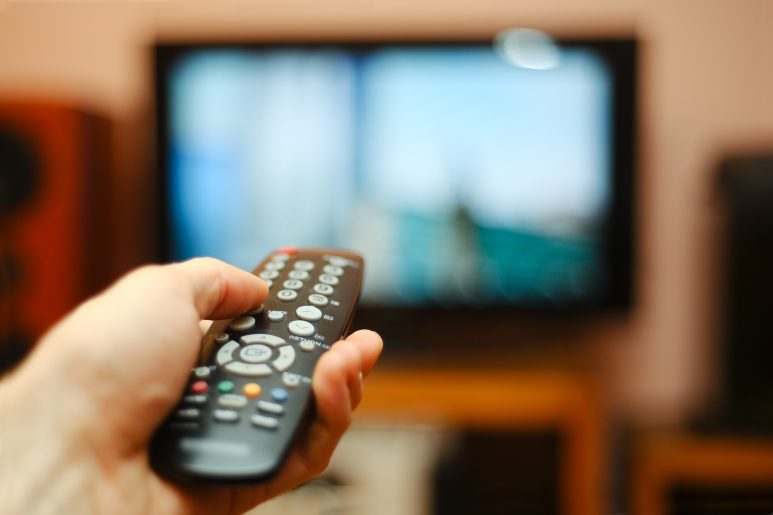By Francis Rolt, Media Consultant and Trainer
Watching and listening to public service channels in the UK, like the BBC and Channel 4, I am frequently disappointed by both. Not because I think that they’re particularly biased or that they report the news dishonestly, but because they often seem parochial.
As a news consumer my criticism of these channels’ is that as public service broadcasters they should do much more. The Reithian injunction to inform, educate and entertain is a good one. But surely ‘inform’ doesn’t only refer to what payers of the BBC license-fee (all TV owners in the UK) want to be informed about? It should also refer to that which everyone ought to be informed about; the world and its diversity.

Where are the stories that take risks
In the case of the BBC, its duty to inform a wider audience makes the choice of news topics more complicated. The BBC is not only responsible to a UK audience, but it also has a global remit. There are many across the world who trust it, listen to or watch it, and depend on it. So where are the stories that take risks, that cover topics of diversity and inclusion which may be unpopular, or which may draw fire from the government or others?
This criticism is not the same as what a recent article claims is the problem with the US public broadcaster, NPR. A senior editor at NPR wrote that the channel serves up a, “distilled worldview of a very small segment of the US population” and is, “telling people how to think”. Yet according to 2022 research by the Reuters Institute, the BBC still attracts a broad cross-section of society, who are representative of, ‘a mixed and/or centrist audience that closely resembles the political make-up of the UK as a whole’.
Climate crisis and local voices?
I ought to be able to assume that the BBC does a reasonable job of distilling a worldview of a broad cross-section of British society. That may also be why it appears to me to be so limited. Sometimes the BBC covers international news extremely well, usually this is dependent on a few stars – Jeremy Bowen and Lyse Doucet for example.
The rest of the time the BBC ignores too many important international stories and too many local voices which don’t emanate from the global north. By that I mean important in the context of an interconnected, global world. Climate crisis? No, but climate change is reported, usually as a lot of isolated, discrete, disastrous events in different countries which are rarely tied into the full-blown crisis that it is. Local voices, rarely. Yemen? Almost never, unless it is to report what the government and the Saudis want reported. And so on.
Telling people what to think
Does that mean the BBC tells people how to think? By omission perhaps. However, although the right-wing press and the UK government use every opportunity to attack the BBC, they have not taken this particular route. The reason is clear; their outlets of choice, GB News for example, excel in exactly that; they tell people what to think.
BBC parochialism could also be the result of there being so many other, specialised outlets, available through websites and podcasts, and on social media. Many provide more detail, deeper background, and more opinion and more voices. Faced with this plethora of competition the BBC, like all media outlets, struggles.
It may be that most people in the UK do not have time or want to be challenged, or to learn about far away places, events and people which seem to have little to do with us. I recently needed to find out more about Yemen. Neither the BBC nor C4 are places to find such information, although they should be. Especially as the UK is deeply involved in the war.
The war of the worlds
I was always sceptical but I’ve not lost trust in the BBC. Has it lost the trust of conservative voters in the UK? It is certainly what the government and some newspapers and broadcast channels repeat ad nauseam. Yet according to the June 2023 survey undertaken by the Reuters Institute, 58% of those in the UK who watch or listen to the BBC three or more times a week believe that the channel is ‘important for society’. And in fact, BBC, Channel 4, and ITV, the public service channels that are required to meet strict impartiality standards, remain the most trusted news brands.
But then trust is an odd concept when it comes to news. As a news consumer it’s essential to remain sceptical always, no matter what the outlet, rather than giving absolute, or undiluted trust. That was the point of Orson Welles’ infamous 1938 radio broadcast of The War of the Worlds, which induced panic and hysteria among some listeners.
Facts, opinion and scepticism
Welles thought that people had become too trusting, accepting of what they were told by the radio. Encouraging scepticism and a questioning attitude should be a primary objective of any media channel. The opposite of a passive acceptance of the news, as though it is a given rather than a series of choices.
No one channel can provide the truth, but some channels try harder than others. Some are unwilling to recognise that a truthfully provided opinion is not the same as a truthfully provided fact, or series of facts. This essential difference, between facts and opinions, seems to be something which many news consumers have either lost sight of entirely, or can’t be bothered with.
The same Reuters research finds that, ‘Public broadcasters such as the BBC, Channel 4, and ITV that are required to meet strict impartiality standards remain the most trusted news brands.’pub Showing that 61%, 59% and 58% of respondents respectively believe that these brands are trustworthy (28% trust and 41% don’t trust GB News).
Bias in news
Trust is a relative term of course. I am interested in international news stories, stories of international importance rather than the limited and parochial. I watch and listen to BBC News and Channel 4, and I trust them to an extent. Channel 4 often criticises our government or government policies, and can be quite hard-hitting, but it too is limited.
I often prefer Al Jazeera because it is willing to go out on a limb, to report a subject which no one else is reporting, in detail and at length. It covers more international news and provides different voices, which is what used to be provided by the BBC. Its biases are also clear, but I know that and can compensate, just as I do for the BBC and Channel 4, or any other media.
Picture from Shutterstock
Disclaimer:
The views and opinions expressed in this article are solely those of the author and do not reflect the official policy or position of the Media Diversity Institute. Any question or comment should be addressed to editor@media-diversity.org

